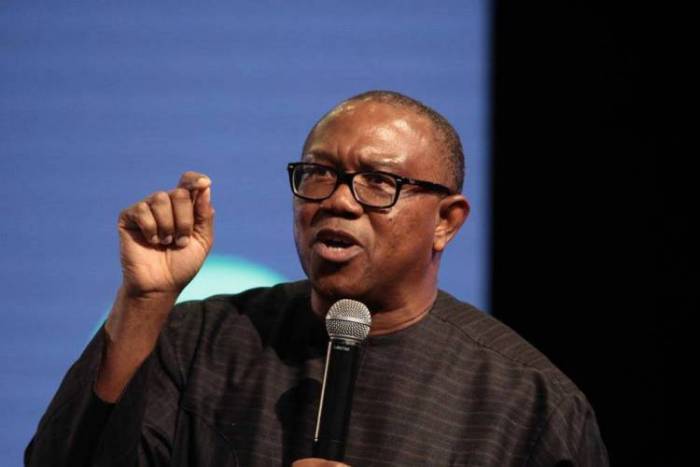Peter Obi, the presidential candidate of the Labour Party in the forthcoming general elections, has argued that the recent flooding in 27 of Nigeria’s 36 states is responsible for the high food inflation rate in the country.
The National Bureau of Statistics (NBS) on Monday revealed that Nigeria’s inflation rate surged to 20.77% in September 2022, the highest rate since September 2005.
Details from the report showed that Nigeria’s CPI rose by 20.77% year-on-year in September 2022, up from 20.52% recorded in the previous month.
Meanwhile, the urban inflation rate stood at 21.25% in September 2022 from 17.19% recorded in the corresponding period of 2021, while rural inflation stood at 20.32%.
Obi disclosed this in a statement issued via Twitter while commenting on the devastating flooding caused by heavy rainfall and the release of water from the Lagdo Dam in Cameroon.
READ ALSO: Peter Obi unveils agenda for tackling insecurity, unemployment, others
He added that insecurity is also a major contributing factor to the rising food inflation in the country. He then promised that if elected President, his administration will ensure that the vast arable lands across the country are well utilised for food production.
Peter Obi said that “while insecurity has kept farmers away from their farmlands, the lack of investment in agriculture has caused the sector to continue to perform poorly.
“In pursuance of our vision of moving the country from consumption to production, I will tackle insecurity as my priority in government, while ensuring that the vast lands littered across the nation, especially in the North, are well invested in for massive food production” he added.
The Nigerian government, through the minister of humanitarian affairs, Hajiya Sadiya Umar Farouq, earlier revealed that 332,327 hectares of farmlands have been damaged by the recent flooding so far.
She added that Nigeria would initiate a bilateral discussion with authorities in Cameroon in November regarding the periodic opening of the Lagdo Dam.

 Entertainment5 days ago
Entertainment5 days ago
 Health1 week ago
Health1 week ago
 Health4 days ago
Health4 days ago
 Football1 week ago
Football1 week ago
 Football1 week ago
Football1 week ago
 Crime4 days ago
Crime4 days ago
 Education6 days ago
Education6 days ago
 Crime1 week ago
Crime1 week ago

